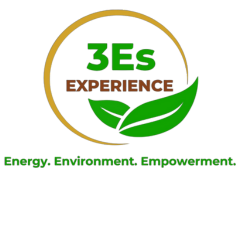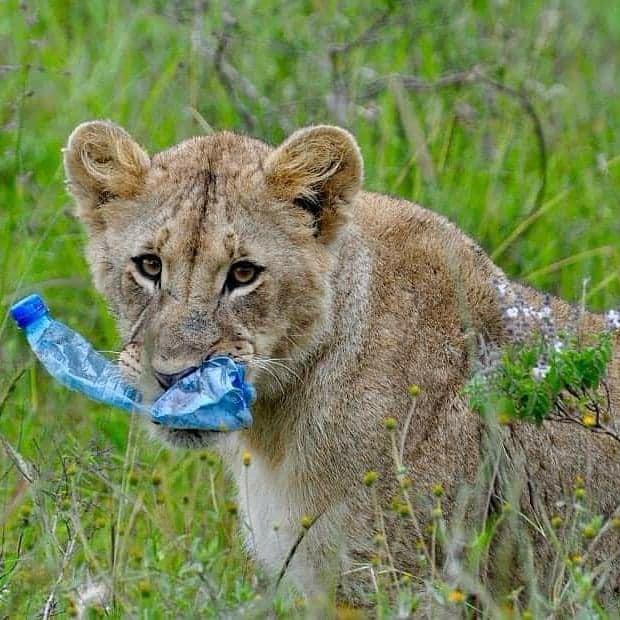We plan to create awareness about wildlife environment. This will help conserve the wildlife and promote sustainable tourism in Kenya.
Kenya prides itself as the only country in the world to have a National Park in its capital city Nairobi. This park plays a huge role in preserving and purifying the city`s environment. Air pollution is a significant human health hazard as it leads to respiratory diseases.
The park’s vegetation moderates temperatures by providing shade and cooling for plenty of resident animals. The Nairobi National Park is not only habitat for animals but also a great social space for humans.
In addition, the park attracts both domestic and international tourists, contributing foreign exchange to Kenya. The tourism industry is one of the country’s major foreign exchange earners, contributing up to 21% of its national income, largely from its natural attractions including wildlife and scenic landscape.
About 10% of the country`s landscape has been set aside for wildlife conservation and bio diversity. We are therefore beholden with the responsibility of protecting and conserving it.
Over the years, plastic waste has remained a lethal challenge hurting the ecosystem of parks, including the Nairobi National Park. Plastic and other forms of waste are unpleasant for plants, animals as well as visitors. This is because they greatly hinder biological development.
How often have you gotten inside a park with packaged snacks? Where do you drop the packaging plastic/ polythene bag? Plastics are made to be used just once but they can last forever in the environment.
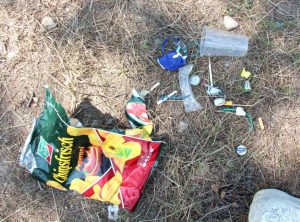
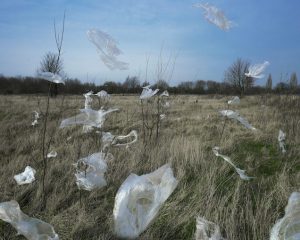
Wild animals cannot differentiate plastic from digestible materials i.e. food that they consume. For them, if it looks like food, or smells like food, or tastes like food, then it must be food. Once plastic is ingested, it cannot be digested, it accumulates in their stomach confusing them to feel full, stopping them from eating and therefore dying from starvation.
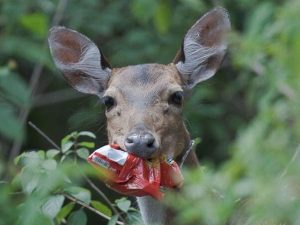
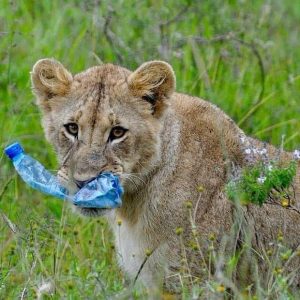
In 2018 for example, an Indian elephant died after eating shopping bags. Plastic bags suffocate animals and cause strangulation through tangling their limb, necks or other body parts.
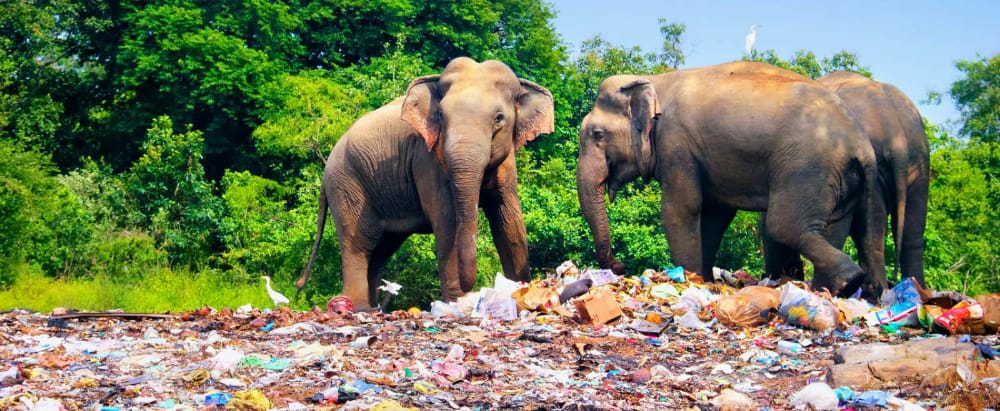
Human beings are also in danger of ingesting plastics. Animals carry micro plastics in their bodies which when eaten, humans ingest the micro plastics. Humans are prone to diseases from the toxins and chemicals from plastics. Humans and animals’ health continue to be at risk as the water they drink is contaminated with toxic compounds and the water drainages ends up being blocked from littered plastics, which affects the flow of water.
Environmental pollution through use of non-disposable waste continues to be a global menace. Stakeholders at continental stage have developed practical solutions and policies to mitigate the diverse effects on terrestrial ecosystem.
In Kenya, the government banned the Single Use Plastics in a bid to conserve the environment and its wildlife. However, enforcement of the policy in the public spaces is still a giant challenge. As an Organization, 3Es Experience is working to support the implementation process by providing solutions and alternatives to compliment the government efforts hence, the Waste Free Park Initiative.

The Waste Free Park Initiative initiative is aimed at environmental conservation and wildlife protection of the Nairobi National Park ecosystem by discouraging littering and encouraging environmental friendly ways of waste disposal. This is so that non-biodegradable waste does not end up inside the park, causing harm to the ecosystem and endangering lives of animals with threats of extinction.
The initiative begun in October 2020 and has been ongoing since.
Last weekend over Easter, 3Es Experience in collaboration with Apex Steel Ltd, Kenya Wildlife Service and YouTube channel: Where is Vivienne? held a three-day Waste Free Park Initiative at the Nairobi National Park, from Friday 1st April through to Sunday 4th April. The partners targeted Easter weekend based on the anticipated large number of visitors.


Visitors coming into the Nairobi National Park were issued with environmentally-friendly litter bags in a bid to mop up plastics at the world famous animal sanctuary. Visitors to the park used the biodegradable bags issued to collect their litter -- mainly water, food and snacks packaging used while inside the park-- and disposed of it in litter bins and recycle stations at the entrance, or with some carrying them home to dispose of responsibly.
Through this, non-biodegradable plastic waste that are threat to the park ecosystem are discarded from the park.


During the Easter weekend, the initiative has had tremendous impact such that over 231 man hours have been put on the ground by the team in distribution of the litter bags, collection of feedback and sensitization to the general public on matters related to Environmental Conservation and Wildlife Protection.


The team has worked for three (3) consecutive days where all were required to be on the ground from as early as 6.00 a.m. and leave as late as 5.00pm. The litter bags have been distributed to over 2500 tourist vehicles both private and tour vehicles and over 20,000 visitors and the general public have been sensitized on matters related to Environmental Conservation and Wildlife Protection.
The Waste Free Park Initiative has so far reached more than 50, 000 visitors. The litter bags help to improve the cleanliness of the park’s environments especially ensuring no littering of non-biodegradable waste within park.
We believe through strategic partnerships and collaborations, we intend to scale up the initiative to other parks such as Tsavo, Lake Nakuru, Amboseli and Maasai Mara,” said Miss Vivienne Kemboi, the” Founder & Executive Director of 3Es Experience Organisation.
“In order to reach all the 49 national parks and reserves, which occupies 7.5% of the land surface we are calling for other like-minded partners to join this noble initiative to make this planet better. This will not only keep our environment safe for survival, but boost the capacity and capability of our parks as source foreign income,” said Miss Kemboi.
By
Admin,
3Es Experience.
